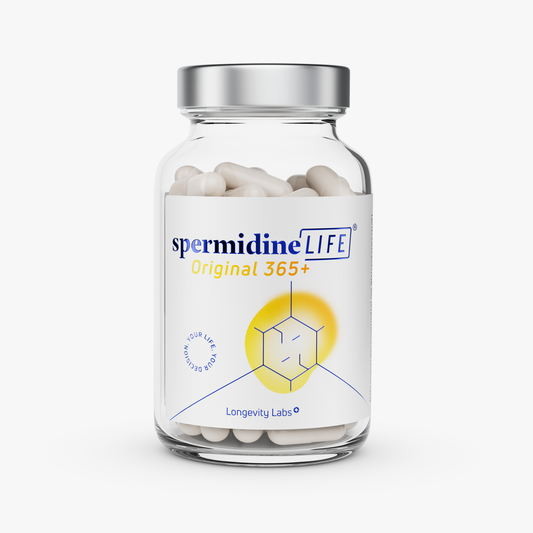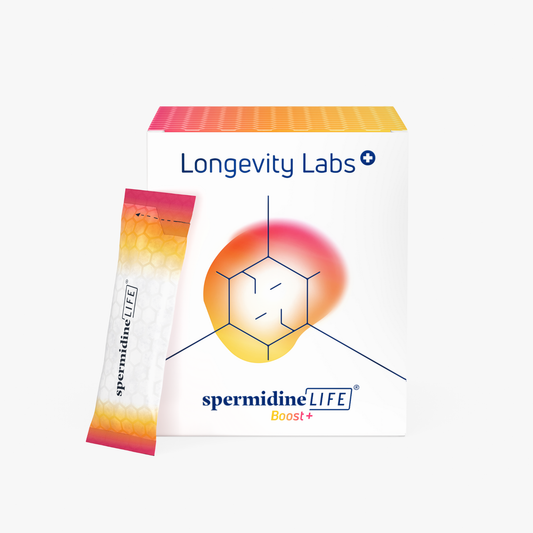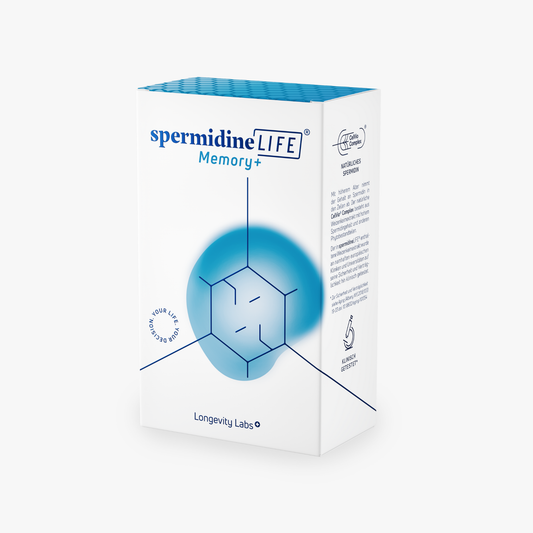
Brain foods – what are they all about?
Memory,Nutrition, TLL LongevityLabsAn apple a day keeps the doctor away! This is something we can only agree with. Latest research results have shown that components in apples support memory performance. Find out what other brain foods there are here.
Simply take one bite for an immediate boost. That’s how many people believe “brain foods” are supposed to work. But what’s the truth behind all these performance boosters? Prof. Barbara Plecko, President of the Neuro-Pediatric Society, says “You can’t eat intelligence and wisdom with a spoon.” Therefore, the assumption that you can increase your IQ by eating brain foods is a pure myth. That much is clear.
But, with the right diet you can make an important contribution to ensuring that your brain metabolism is working well and that your brain cells have the best possible supply because they depend on nutrients for all thought and work processes. And a good supply is essential. Although the brain accounts for only about 2 % of your total body weight, it consumes about 20 % of your basal metabolic rate, as we reported here.
But there’s another reason why the supply of nutrients is important. “The brain is not an organ like the liver that is able to store nutrients. It is completely dependent on the supply of nutrients from the blood”, explains Prof. Barbara Plecko.
So, you need to regularly supply it with the right nutrients, vitamins and trace elements that it urgently needs to function. These include water, carbohydrates, proteins, fats – in particular omega-3 fatty acids – vitamins (B1, B6, B12 and C) and trace elements such as magnesium, iron, iodine and zinc.
Proper brain foods also contain important precursors of neurotransmitters or substances that are important for effective synthesis of these messengers, or that provide the right energy sources or substances that are needed for energy utilization, and contain special regenerative and protective substances.
If the brain cells have all the nutrients they need, your mind’s ability to remember and concentrate will improve and you can protect your body’s control center from the development of diseases. In addition, with the right nutrition you can exert a significant influence on hormonal control circuits, the formation and action of neurotransmitters, and the functioning of cell walls.
This has also been confirmed by the brain researcher and neuroscientist at the Johannes Kepler University in Linz, Dr. Manuela Macedonia, in her new book “Iss dich klug” (Eat yourself smart). Note: book tip! In the book, she sheds light on the effect of nutrition on the brain, and considers, among other things, the elasticity of cell walls and the development of neuroses. She confirms that with the right diet you can influence the brain, mental abilities and the psyche. In her opinion, the health of brain cells is the primary concern, they need to be fit to function optimally from the cradle to old age. According to her, high-quality nutrition “nurtures” the brain system. But what counts as one of these high-quality foods and is thus entitled to be called “brain food”?
Our top 5 brain foods
1. Water
Yes, we know. It’s getting boring hearing it repeated over and over again. But what else can we do? As humans, our bodies consist of more than 50 % water. This percentage is even higher in the brain, which is made up of almost 75 % water. Water ensures that our brain cells are supplied with sufficient oxygen. Dehydration causes the brain to release the hormone cortisol, which shrinks the dendrites. This leads to a deterioration in brain activity. Studies have shown that even a 2 % reduction in the body’s water balance leads to a decrease in concentration and energy levels.
2. Whole-grain bread
As we have already explained, our brain consumes more than 20 % of our energy needs which we cover for the most part with carbohydrates. So, if you want to do concentrated work over an extended period of time, you will need to ensure a steady supply of energy. Whole-grain bread is an ideal choice. It consists of complex, long-chain carbohydrates that our body metabolizes over a longer period of time, providing a more long-term supply of energy for your brain cells. Whole grains also contain a lot of protein. This is especially important for the flow of information. Its smallest building blocks – the amino acids – act directly or indirectly as neurotransmitters. They ensure that information flows quickly from one cell to the next.
3. Nuts
It’s true, healthy trail mixes do have a positive influence on our power of thought. This is because nuts provide minerals and trace elements such as zinc, proteins, secondary plant compounds, and antioxidants. Antioxidants protect the brain from the harmful effects of free radicals. Nuts also contain fats, namely omega-3 and omega-6 fatty acids. Fats are not only the number two supplier of energy, polyunsaturated fatty acids also have a favorable effect on the neurons’ sheaths and on their interaction. They stabilize their cell membrane and lead to better signal transmission.
4. Leafy vegetables
Leafy vegetables such as mustard greens, watercress and spinach contain minerals, vital nutrients and secondary plant compounds that regulate the nervous system and support cognitive function. A 2018 study showed that older adults who consumed 1.3 servings of leafy vegetables a day were able to slow the rate of cognitive decline by up to 11 years. Their brain cells were thus shown to stay fit and active for longer. If you’re wondering how best to incorporate leafy vegetables into your diet, we can recommend green smoothies. The blend of plant greens and fruit they contain provides just the right mix for your brain cells. And that brings us to our last tip for brain foods:
5. Fruit
Even though there are always warnings against fructose, fruit still provides many important nutrients for the brain that help you to recall information faster. Bananas contain a lot of magnesium and are a real nerve booster. They also put you in a good mood because they contain amino acids that are converted into serotonin by the brain. According to researchers, berries can reduce the risk of diseases such as dementia and Alzheimer’s because they are rich in minerals and antioxidants.
6. Apples
That’s right, apples! A new 2021 stem cell research study – fresh out of the press, so to speak – has shown that apples stimulate the growth of new neurons in the learning and memory center and thus have a positive effect on learning and memory. More specifically, the high concentration of the phytonutrients quercetin and dihydroxybenzoic acid (DHBA) in apples stimulates neurogenesis. This was found by the researchers Tara Louise Walker, University of Queensland, and Gerd Kempermann, German Center for Neurodegenerative Diseases, together with their teams. Their study showed that laboratory-grown stem cells from adult mouse brains generated more neurons and were protected from cell death when the above phytonutrients were added to the cultures. The effects on neurogenesis were comparable to the effects after physical exercise, a known stimulus for the process of neurogenesis.
And last but not least, our newest favorite: spermidineLIFE® Memory+. Taking this dietary supplement will provide you with many of the nutrients that support brain performance.1,5 It gives you the right blend of brain-active micronutrients to best support and maintain your brain and memory cells.1,3,5






